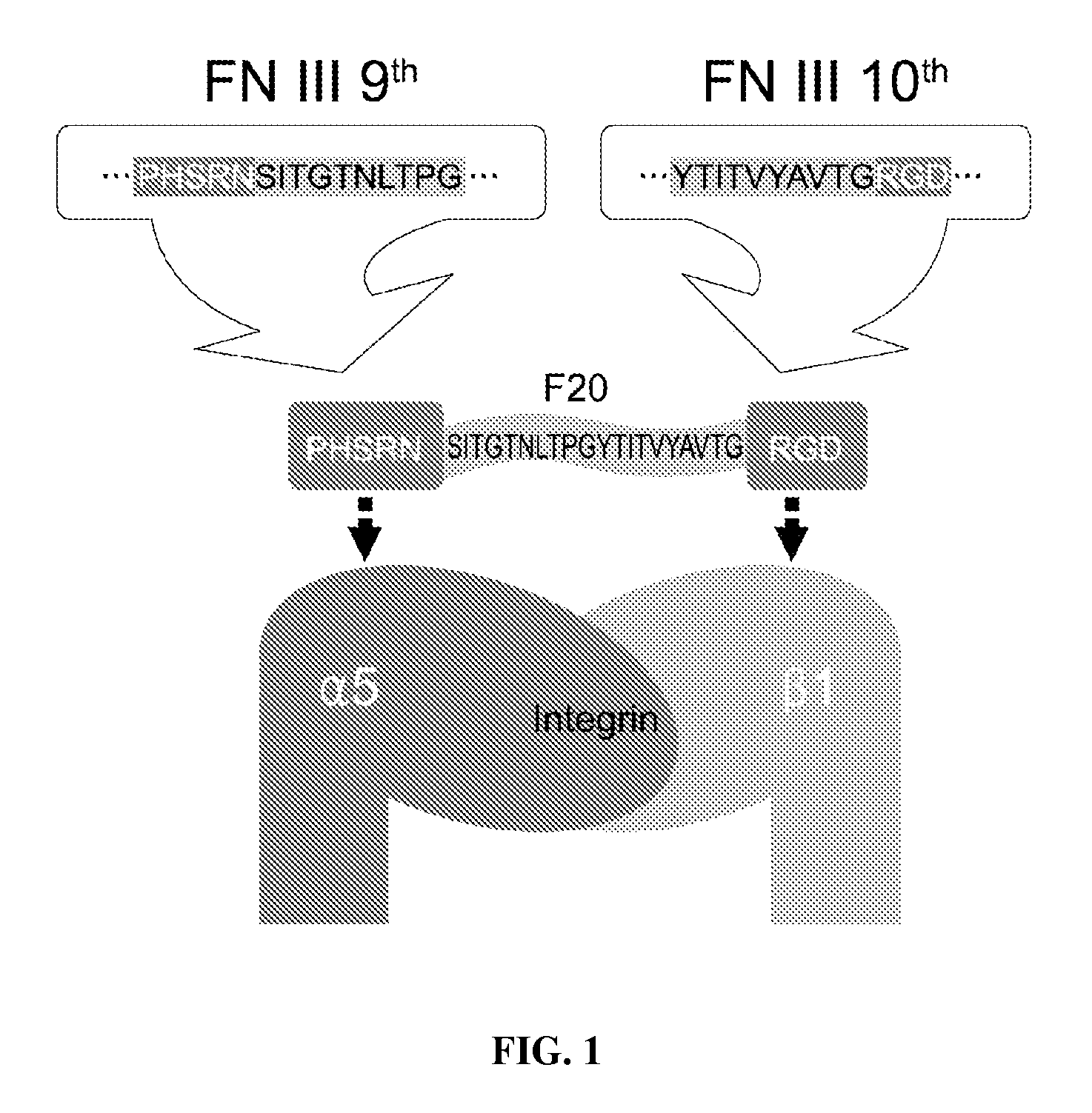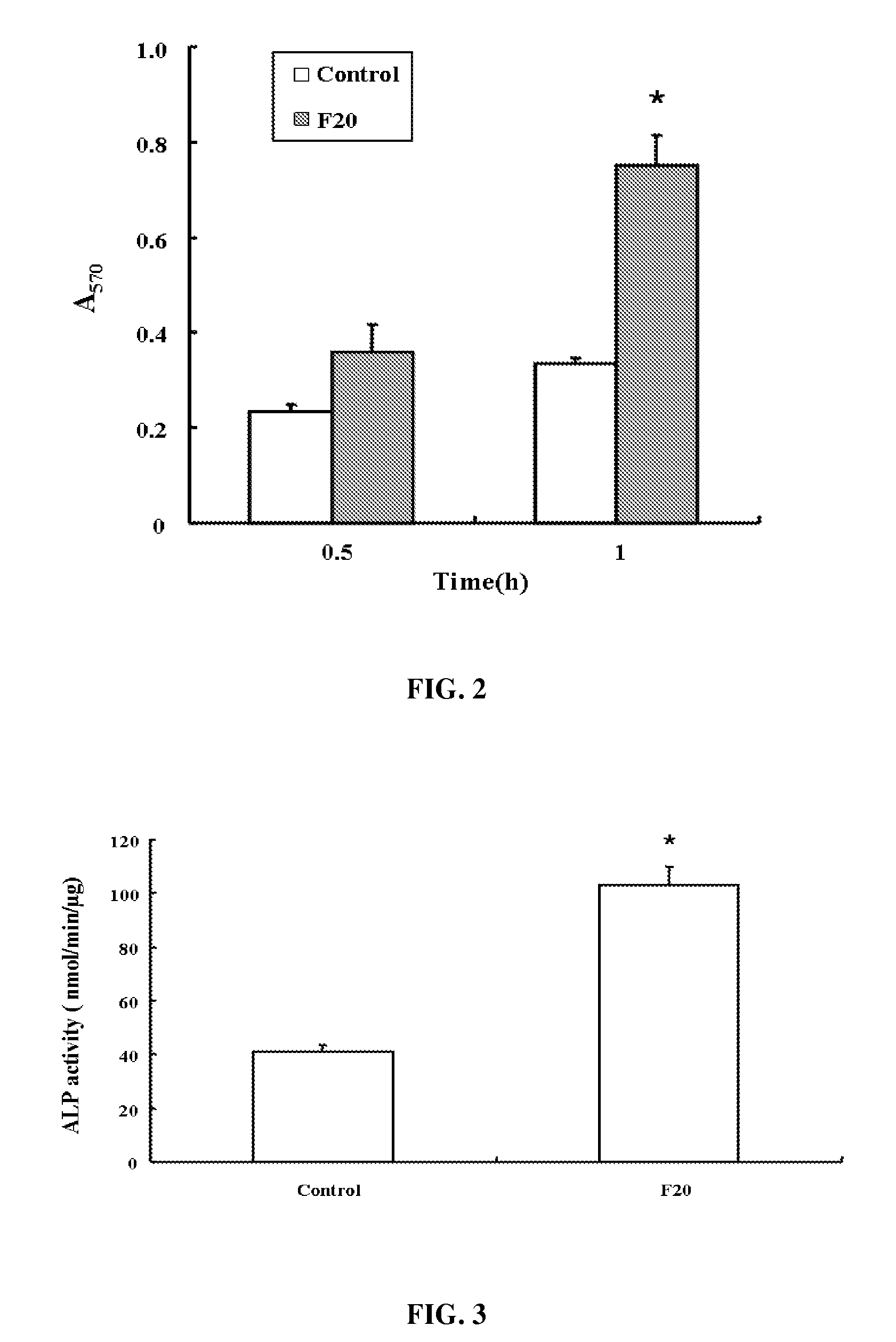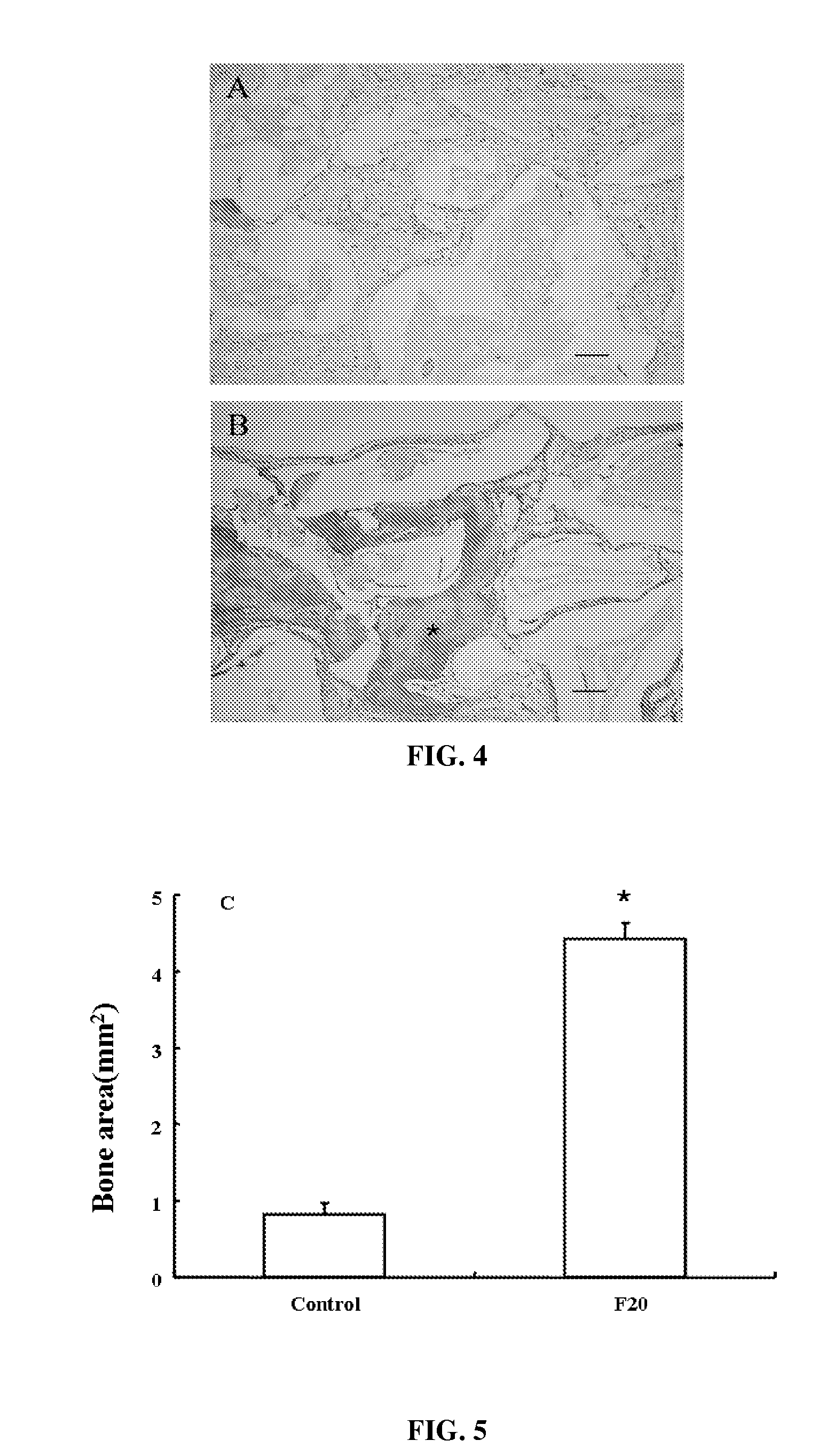Composition of bone formation with PHSRN-RGD containing oligopeptide
a technology of oligopeptide and composition, which is applied in the direction of peptide/protein ingredients, drug compositions, prosthesis, etc., can solve the problems of poor bone formation and inadvisable use of whole fn protein for osteoblast promotion
- Summary
- Abstract
- Description
- Claims
- Application Information
AI Technical Summary
Benefits of technology
Problems solved by technology
Method used
Image
Examples
example 1
Preparation of PHSRN-RGD Containing Oligopeptide
[0033]In order to prepare a PHSRN-RGD-containing oligopeptide, fibronectin cDNAs were first amplified using a human cDNA library as a template. PCR primers were designed to recognize the RGD region as well as the PHSRN region to synthesize a sense primer (20-BF, 5′-TTCATATGATCCCCACTCTT-3′; SEQ ID NO: 4) and an antisense primer (20-KR, 5′-TTGGATCCTTAGTCTCCACG-3′; SEQ ID NO: 5). PCR was performed in a 50 μl reaction solution containing 50 mM KCl, 10 mM Tris / HCl (pH 8.3), 1.5 mM MgCl2, 100 μg / Ml gelatin, 0.2 mM dNTPs, 1.25 units of Taq polymerase (Perkin-Elmer), and 50 pmol primers. The thermocycling parameters used in the PCR were as follows: annealing, 1 min at 55° C.; extension, 2 min at 72° C.; denaturation, 1 min at 94° C. After 30 cycles, amplified cDNAs were digested by BamHI and NdeI. After digestion, the PCR product was purified with a PCR purifying kit (QIAGEN, Chatsworth, Calif.). Nucleotide sequences of the inserted portion we...
example 2
Cell Culture
[0036]MG63 cells (Korean Cell Line Bank, KCLB), used in the present invention, which is a human osteosarcoma cell line, were cultured in Dulbecco's modified Eagle's medium (DMEM) containing 10% (v / v) fetal bovine serum and 0.1% (w / v) gentamycin at 37° C., in a humidified 5% CO2 incubator.
example 3
[0037]24-well plates were coated with 0.1 μM recombinant oligopeptide or poly-L-lysine at a predetermined concentration overnight at 4° C. and blocked with PBS containing 1% (w / v) BSA for 30 min, then rinsed with PBS.
[0038]The MG63 cells were serum-starved for 24 hours, harvested in 0.02% (w / v) trypsin, 1 mM EDTA, and resuspended in DMEM. After being washed 3 times with DMEM containing 100 μg / Ml soybean trypsin inhibitor and 1% (w / v) BSA, 5×104 MG63 cells in DMEM were plated in each well to culture at 37° C. for 30 min or 1 hour. Suspensions of control cells were maintained in BSA-coated plates at a given time. After 30 min, adherent cells were washed twice with PBS, fixed with 3% (w / v) paraformaldehyde, and stained with 0.25% (w / v) Crystal Violet (Sigma, USA) in 2% (v / v) ethanol / water. After washing with distilled water, the plates were allowed to dry. The absorbancy was measured at 570 nm to represent the mean±SD (standard deviation). Non-specific adhesion was d...
PUM
| Property | Measurement | Unit |
|---|---|---|
| width | aaaaa | aaaaa |
| pH | aaaaa | aaaaa |
| pH | aaaaa | aaaaa |
Abstract
Description
Claims
Application Information
 Login to View More
Login to View More - R&D
- Intellectual Property
- Life Sciences
- Materials
- Tech Scout
- Unparalleled Data Quality
- Higher Quality Content
- 60% Fewer Hallucinations
Browse by: Latest US Patents, China's latest patents, Technical Efficacy Thesaurus, Application Domain, Technology Topic, Popular Technical Reports.
© 2025 PatSnap. All rights reserved.Legal|Privacy policy|Modern Slavery Act Transparency Statement|Sitemap|About US| Contact US: help@patsnap.com



